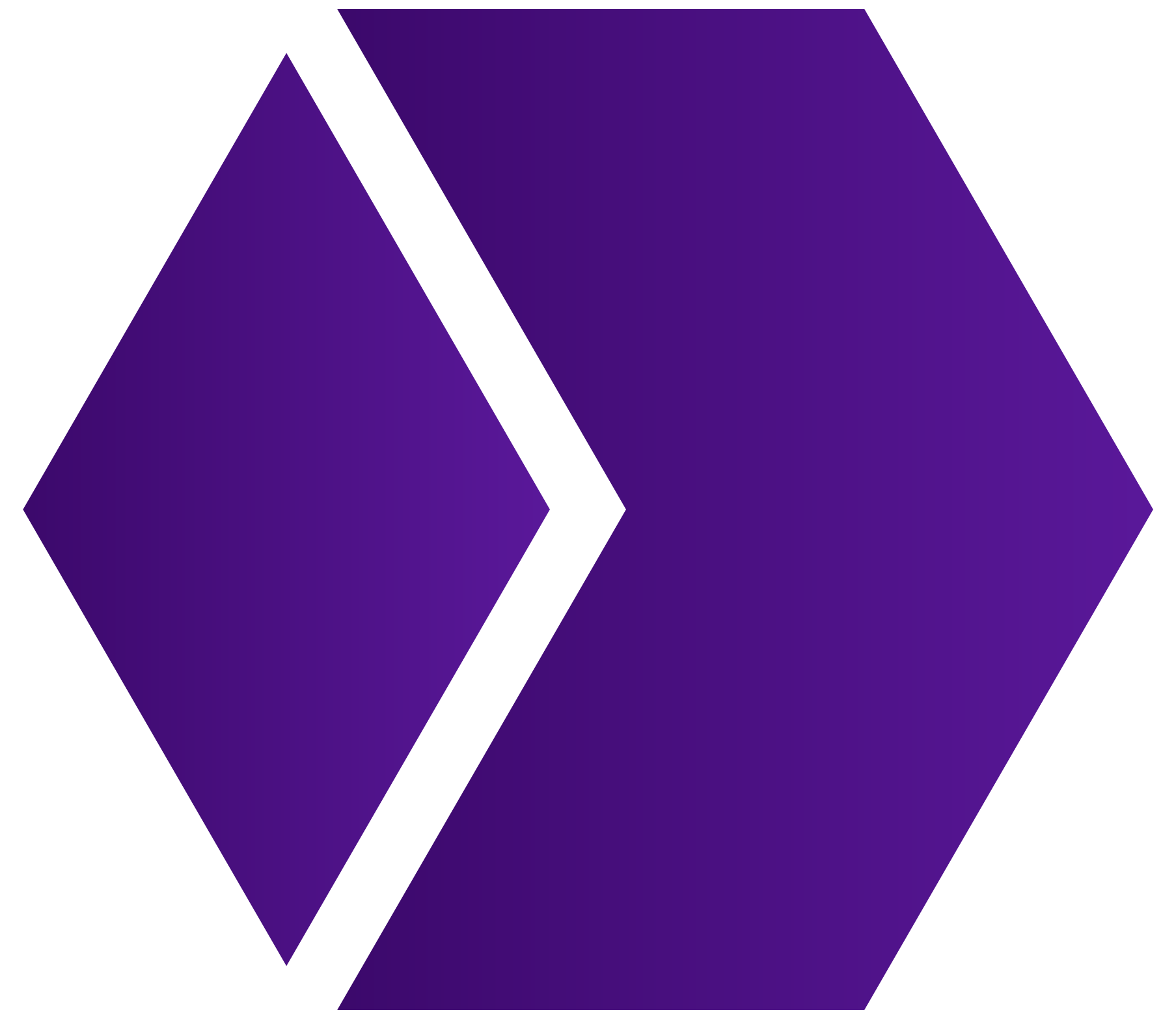Evolution from Crypto Wallets to Super Wallets
The crypto wallet space has transformed incredibly over the years. Initially, they were just a niche tool to store and manage cryptocurrencies. Now, super wallets are on their way to becoming complete digital banks.
People first started using basic crypto wallets in the early 2010s. Tech-savvy users who were drawn to the idea of a secure and decentralized version of the banking system found that these wallets worked well. These wallets were great because they didn't rely on the traditional banking model to keep user's money safe. Instead, they used decentralized and secure blockchain networks. And though these networks were great, they could still only be used for crypto-assets.
But now, crypto wallets do much more than that. Developers realized that people wanted a better way to take care of their money, so they started adding new features to their apps. The two major factors that lead to the expansion and development of super wallets are:
A set of laws called open banking has been put into place in many countries around the world. In Europe, PSD2 says that banks have to let third parties work securely with their customers' money. For this reason, super wallets can connect very securely to user bank accounts. Users can now send bank transfers from their account through a wallet that also lets them pay with crypto. They can also see all of their accounts (crypto and fiat) in one place for easy control.
Everyone wants things to be easy, especially when it comes to moving their money around. Super wallets offer many services that regular banks do not currently offer. For example, you can store your crypto, connect your bank accounts (and see your balance in real-time), pay bills, invest in stocks, and take out loans, all from one app
Super wallets are already starting to replace regular banks in some parts of the world. Take China, for example, where Alipay and WeChat Pay are used by almost everyone. These apps started as a means to make payments, but now you can do so much more. In fact, besides payments, you can also use them for wealth management, buying insurance, paying your bills, and many more.
The Role of Digital Identity in Super Wallets
Super wallets are not just a way to store your crypto and credit cards. They use digital identity technology to make payments easier and safer. Here's how:
Verifiable Credentials
Do you know how you have to fill out forms over and over again when you sign up for something new online? One of the many cool features of super wallets—like the Soul Wallet from Soulverse—is that they let users store verifiable credentials—digital certificates issued by trusted institutions— on their wallets.
This would not only save time but also cut down on fraud. So, if you were applying for a loan through your super wallet, instead of sending your potential lender pay stub after pay stub, which they then have to check for authenticity, your bank could just give you a Verifiable credential saying how much money you make.
Secure Biometric Authentication
Another perk of super wallets is stronger logins. Unlike most online banking systems (which rely on passwords), super wallets use biometric authentication, like fingerprints or facial recognition, to ensure that only a genuine user can gain access to their wallet.
Self-Sovereign Identity (SSI)
With this feature, you would have complete control over your digital identity because you would be the one storing and sharing your Verifiable credentials with whomever you choose. For example, when signing up for a new service through a super wallet—let’s say an app that delivers prescription medicine right to your door—you could select which verifiable credential(s) about your health history you would like to share with the service provider.
Blockchain Integration
To make its users’ transaction histories even more secure, some super wallets also integrate blockchain technology as a secure and tamper-proof ledger to confirm their users’ transactions and identities.
The Soul Wallet has all of these exciting digital identity features. It aims to provide users with a secure place to store and manage their digital identity and transactions privately.
Super Wallet in the Soulverse's Ecosystem
Super wallets are currently gaining more popularity in the financial services space. And platforms like Soulverse are building on their existing foundations, by introducing additional features that could extend the utility of super wallets beyond the boundaries of finance. Here is how Soulverse aims to stand out with super wallets:
Cross-Chain Compatibility: While many super wallets focus on specific blockchains, the Soulverse Super wallet's EVM compatibility lets users interact with multiple blockchain networks like Polygon and Ethereum. With this feature, users can manage various assets across these different blockchain ecosystems easily.
Decentralized Identity Verification: The wallet lets you store your various credentials along with your financial assets. This makes it serve as a decentralized KYC (Know Your Customer) solution. Instead of repeatedly providing personal information to different services online, you could simply share relevant credentials from your wallet, giving you privacy and control over your data.
One Wallet for Various Transactions: You can make various transactions online or offline via the Soul Wallet easily. Whenever you want to - pay for a physical product, tip a favourite creator, or a service -, you could pay with money from your super wallet, and the seller would get it right away. One advantage of this feature is that Soulverse wouldn't have to set up complicated integrations with several payment gateways to enjoy this feature.
Integrated DApp functionality: As a decentralized application itself, Soul Wallet offers easy interaction with other DApps, expanding its utility in the broader blockchain ecosystem.
By combining these features, the Soul wallet offers a unique value proposition compared to other super wallets: a single application that securely manages both digital identity and various forms of currency, both crypto and fiat. Its comprehensive approach to digital finance simplifies digital asset management while providing a higher level of security and control for users in the evolving digital economy.
The Future of Banking with Super Wallets
Super wallets are poised to become a powerful platform that could change how people interact with financial organizations, although right now they're still in the early stages. Let's highlight and address some opportunities and challenges that could impact the adoption of super wallets in the future.
Better Financial Inclusion: As a safe way to offer financial services that protect against fraud, super wallets could be very useful for people who have been excluded from regular banking until now.
Easier Money Management: Super wallets can be used to access different types of financial services or products. Users can keep track of and organize their bank statements, crypto assets, receipts, documents, and more, all in the super wallet app.
Smooth Transactions: With super wallets, people might be able to make secure payments to friends or businesses in other countries or even just down the street with only a few taps. This could cut down on how much it costs to do business and speed up transactions compared to going through regular banking channels.
Challenges
:
Regulations and Security: The government could have a hard time controlling these systems since some super wallets, especially ones built on top of decentralized platforms, might be outside of their control. Making sure that user funds and other digital assets are safe from hackers would also be a big challenge.
User Adoption: A lot of the drawbacks to super wallets have to do with how popular they are and potential users' concerns about new finance technologies. Two hurdles that Super Wallets would need to overcome are building trust and getting. If these problems are solved and the opportunities well leveraged, super wallets could become the only option for managing not only our financial lives but also our digital journeys.
Real-life Implementations of Decentralized Wallets:
MetaMask: MetaMask is one of the most widely used decentralized wallets, allowing users to manage their cryptocurrencies and interact with decentralized applications (dApps) directly from their browser. It supports various blockchain networks and offers secure, private key storage.
Trust Wallet: Trust Wallet is a mobile wallet that supports a wide range of cryptocurrencies and tokens. It enables users to store, send, receive, and stake their assets securely. Trust Wallet also integrates with dApps and offers in-wallet exchanges and staking features.
Argent: Argent is a super wallet designed for ease of use and enhanced security. It provides features such as social recovery, integration with DeFi protocols, and the ability to store and manage various digital assets. Argent aims to make interacting with the Ethereum blockchain simple and secure.
Coinbase Wallet: Coinbase Wallet is a decentralized wallet that allows users to manage their crypto assets and access dApps. It provides a user-friendly interface, secure private key storage, and supports a wide range of cryptocurrencies. Coinbase Wallet also integrates with the Coinbase exchange for seamless transactions.
MEW Wallet: MEW (MyEtherWallet) Wallet is a versatile and secure Ethereum wallet. It allows users to manage their ETH and ERC-20 tokens, interact with dApps, and participate in ICOs. MEW Wallet provides robust security features, including hardware wallet support, to ensure the safety of users' assets.







